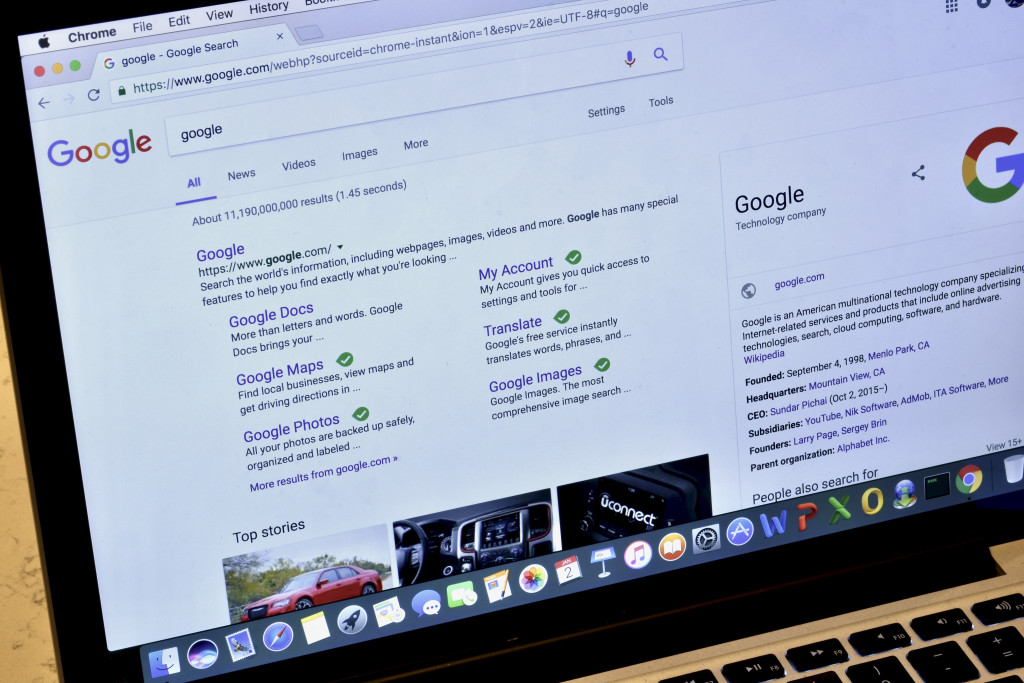Are you wondering why most companies make it their goal to rank on the first page of Google? Statistics show that 1 billion people are actively using Google. Second, the search results that appear on the first page give users the impression that they are the most relevant, trustworthy, and popular. The fact is, no one bothers to read on the second page.
So how can your website appear on the first page of Google considering that there are too many competitions?
1. Identify your keyword
Through the help of different SEO tools or SEO outsourcing solutions, you can determine which keywords are most relevant to your business. The two types of keywords are:
Short tail. These are the phrases that consist of only 1 to 3 words. (e.g malware definition, anti-malware software, and malware threats)
Long tail. These are the most specific searches with more than four words (e.g what is the definition of malware?, What is anti-malware software?, How to prevent threats and viruses on the computer?, and What are the best anti-malware software)
Once you have identified the relevant keywords for your business, it will be easier for you to tailor your content.
2. Optimize your keywords
This is the easiest way to tell search engines and web crawlers what your page is about. Web crawlers scan thousands of content within the index, and the following are the primary factors for determining keyword relevance:
Meta title. This is the title that appears on the search engine. Placing your keyword here tells web crawlers that your web content is relevant to the user searches
Meta description. This is the short summary of your content that appears below the meta title. Web crawlers also use this to determine webpage rankings.
URL. Adding keywords in the URL helps Google identify what the webpage is about.
Alt tag. This is also known as the image tag which tells web crawlers that you have related content.
3. Write for Humans
Avoid keyword stuffing. This is a technique used to manipulate the position on search engines. Before, it was an effective strategy to get on the first page of Google. But web crawlers are smarter now. If you practice keyword stuffing, your content is more likely to be ignored, or worse get penalized. If that happens, you will lose your ranking.
As a rule of thumb, mention your keyword in the first 100 words of your article. Just ensure that your content is relevant, valuable, and informative. When users learn something important after reading your article, you might gain their trust.

4. Make your page responsive
72% of people across the world are using mobile phones to browse the Internet. And as IoT devices continue to be on the rise, we can expect an increase in that number in the future. But some websites are still not viewable on smartphones. Users are more likely to discard your website and find another source where they can read without a hassle. So ensure that your website is responsive across all devices.
5. Optimize your Google My Business Account
Google My Business serves as your business portfolio that includes all relevant information such as location, products and services, and prices. Google Search and Maps include Google My Business in search results, so having a Google My Business account will increase your chances of ranking higher. It is free and easy to use.
6. Include Reviews and Testimonials
The main purpose of reviews and testimonials is to increase the reputation of your website. Consumers today look for feedback before they buy something. Apparently, they are becoming relevant in the search engine algorithms and affect the position of the website.
For instance, if your Google My Business account has excellent reviews, it will drive more traffic, increasing your chances of ranking on the first page of Google. Try dedicating a page on your website for reviews and testimonials. You may also share them on different platforms, particularly social media.
7. Emphasize your location
Don’t forget to specify your geographical location, Google is more likely to include your website in the “near me” search result when a user searches for the keyword.
What Are the Advantages of Getting on the First Page of Google?
- Improve your business exposure
- Generates more leads
- More sales conversion
- Increase customer engagement
- Drive more traffic
- Secure your authority in the industry
- Gain trust
- Build and grow your audience
- Expands your network
With so many competitions worldwide, it may seem impossible to hit the first page of Google. But with consistency and dedication, your website can rank higher.

